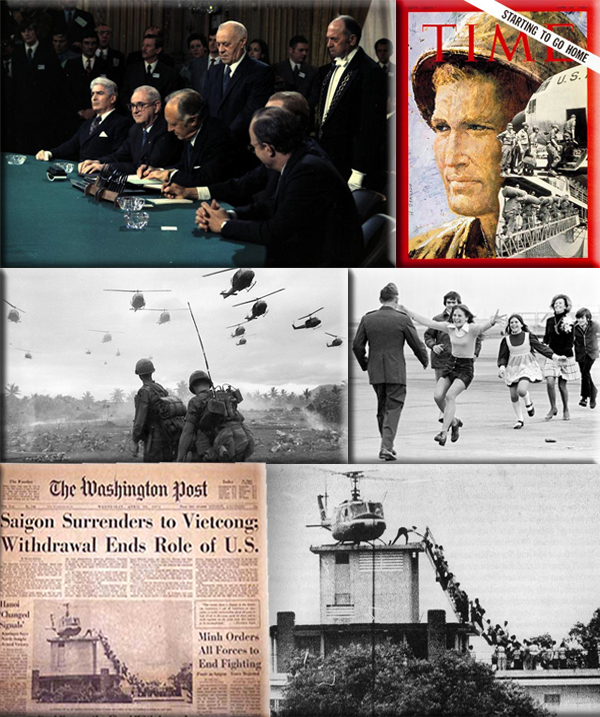
Paris Peace Accords signed on January 27, 1973
Paris Peace Accords signed: The United States, South Vietnam, Viet Cong, and North Vietnam formally sign “An Agreement Ending the War and Restoring Peace in Vietnam” in Paris. Due to South Vietnam's unwillingness to recognize the Viet Cong's Provisional Revolutionary Government, all references to it were confined to a two-party version of the document signed by North Vietnam and the United States—the South Vietnamese were presented with a separate document that did not make reference to the Viet Cong government. This was part of Saigon's long-time refusal to recognize the Viet Cong as a legitimate participant in the discussions to end the war. 
The settlement included a cease-fire throughout Vietnam. It addition, the United States agreed to the withdrawal of all U.S. troops and advisors (totalling about 23,700) and the dismantling of all U.S. bases within 60 days. In return, the North Vietnamese agreed to release all U.S. and other prisoners of war.
Both sides agreed to the withdrawal of all foreign troops from Laos and Cambodia and the prohibition of bases in and troop movements through these countries. It was agreed that the DMZ at the 17th Parallel would remain a provisional dividing line, with eventual reunification of the country “through peaceful means”. An international control commission would be established made up of Canadians, Hungarians, Poles, and Indonesians, with 1,160 inspectors to supervise the agreement. According to the agreement, South Vietnamese President Nguyen Van Thieu would continue in office pending elections. Agreeing to “the South Vietnamese People's right to self-determination”, the North Vietnamese said they would not initiate military movement across the DMZ and that there would be no use of force to reunify the country.
Footnote: The last U.S. serviceman to die in combat in Vietnam, Lt. Col. William B. Nolde, was killed by an artillery shell at An Loc, 60 miles northwest of Saigon, only 11 hours before the truce went into effect.
History Channel / Wikipedia (Vietnam War) / Britannica (Vietnam War)  / PBS / Vietnam War Commemoration / The Wall / Vietnam War: The Big Picture, Boston Globe / IIS FALCONE
/ PBS / Vietnam War Commemoration / The Wall / Vietnam War: The Big Picture, Boston Globe / IIS FALCONE
Image: Ending America's Involvement in Vietnam (January 27. 1973), The United States Pulls Out of Vietnam University of Texas / Released prisoner of war Lt. Col. Robert L. Stirm is greeted by his family at Travis Air Force Base in Fairfield, Calif., as he returns home from the Vietnam War, March 17, 1973. In the lead is Stirm's daughter Lorrie, 15, followed by son Robert, 14; daughter Cynthia, 11; wife Loretta and son Roger, 12. (© Sal Veder, AP Photo)
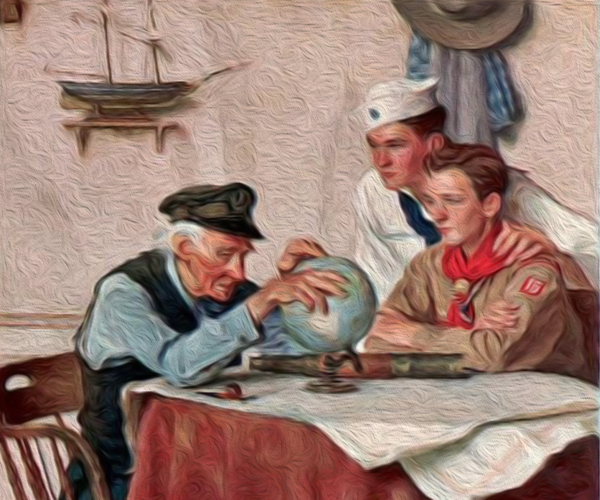
Understanding Military Terminology - free drop
(DOD) Free drop:
The dropping of equipment or supplies from an aircraft without the use of parachutes. See also airdrop; air movement; free fall; high velocity drop; low velocity drop. Wikipedia / Joint Point 3-17)
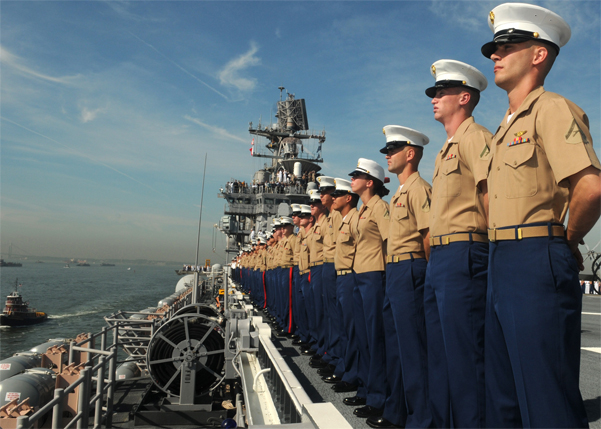
The Old Salt’s Corner
Personal Safety Measures
In addition to regulations and naval tradition, follow common sense and good judgment about yourself and your surroundings at all times when aboard the ship. Be aware at all times; a United States Navy warship is, by definition of its function, an extremely hazardous environment. Be cognizant of the following safety related issues:
Loss of electrical power aboard ship is always a possibility. It is highly recommended that you bring some kind of personal lighting device, such as a small flashlight, to help you in the event you are “caught in the dark”.
Upon locating your work center and berthing space, locate all possible routes of escape form each location. In the past, lives aboard ship have been lost to fire or fumes. In part, this was due to a lack of planned escape routes.
Take care when listening to personal music devices such as a Walkman, not to turn the volume so high as to preclude the hearing of emergency announcements. Remember that the ship operates 24 hours a day and important announcements could be made at any time.
When departing your quarters always wear shoes, even if only for a brief time (i.e., as in traveling to the head). Ladders, metal decks, sharp protrusions and other hazards present problems if walking barefooted.
Look for Oxygen Breathing Apparatuses (OBAs) and fire extinguishers in your quarters and workspaces. Ask ship’s personnel to give you a demonstration of this important life saving equipment.
More deaths aboard ship result from electrical shock than any other type of accident. Most electrical shocks are due to human mistakes or improper procedure rather than equipment failure. The following are common mistakes:
Unauthorized use of or modification of electrical equipment.
Failure to observe the applicable safety precautions when using or working on energized equipment.
Failure to report equipment known to be defective. Use of privately owned electric equipment such as irons, extension cords, hair dryers, and coffee pots may be authorized if inspected and approved by the ship’s Electrical Safety Shop.

“I’m Just Sayin’”
Are part-time band leaders semi-conductors?

“Thought for the Day”
“Always forgive your enemies - nothing annoys them so much.”
~ Oscar Wilde

“What I Have Learned”
“Life is really simple, but we insist on making it complicated.”
~ Chinese Proverb

Bizarre News (we couldn’t make up stuff this good – real news story)
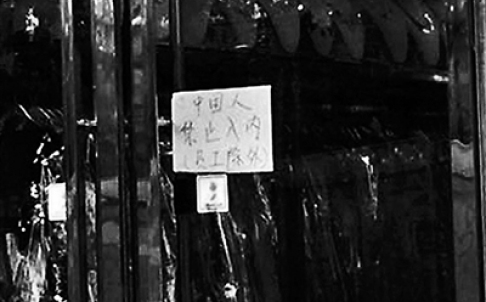
BEIJING, China - In November, a clothing store on Yabao Road in Beijing came under criticism for posting a sign, “Chinese Not Admitted,” on its door.
An employee told the Beijing Youth Daily newspaper that no one should believe that “we Chinese look down upon ourselves. But some Chinese customers are too annoying.”
(A legal scholar told the newspaper that China, except for Hong Kong, has no law against racial or ethnic discrimination.) South China Morning News (Hong Kong)
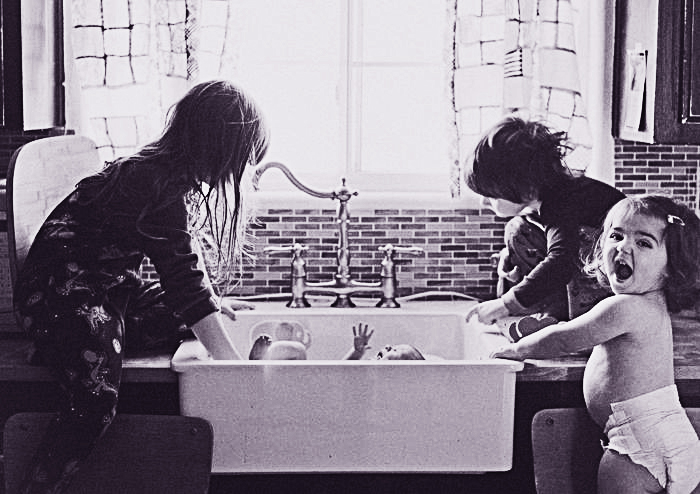
Mr. Answer Man Please Tell Us: If I never took a bath would it really be so bad for my health?
Your initial thought as you ponder this question might involve the word "gross." Beyond the immediate ramifications involving odors and a marked decline in social invitations from friends and family members, are concerns of a more serious nature -- the health variety.
Think about what's going to happen if you decide to stop bathing:
● You'll smell bad.
● Your skin and hair gets dirtier and dirtier.
● Your chance of infection goes up.
● You'll probably itch a lot more, and this could lead to an even higher risk of infection.
Consider what's going to get and remain dirty if you never bathe. The average human body is covered by about 20 square feet (2 square meters) of skin containing about 2.6 million sweat glands. In addition to sweat glands, your skin houses thousands of tiny hairs.
You are constantly sweating, even though you may not notice it. There are two kinds of sweat glands all over your body -- eccrine and apocrine. The sweat from apocrine glands contains proteins and fatty acids, which make it thick and give it a milky or yellowish color. This is why underarm stains in clothing appear yellowish. It turns out that sweat itself has no odor. Then why, you may ask, is a sweaty person so smelly? When the bacteria on your skin and hair metabolize the proteins and fatty acids, they produce an unpleasant odor.
An average person can sweat something like 1 to 3 liters per hour depending on the surrounding climate. Let's say you're sweating as much as 3 liters every hour. Because your skin, along with the hair all over your body, is sticky with sweat, it's probably picking up even more grunge than usual. Now we're just talking surface grime here -- regular old dirt. What about the other germs and microorganisms your skin regularly plays host to? For the most part, these bacteria, fungi and yeasts prove no major threat as long as they remain on the skin's surface. However, if they reach the bloodstream, that can be quite a different story.
There are a number of things that can make a person itch. Anyone can get chiggers or ringworm. Normally, this isn't such a big deal. Get some medicated ointment and you will be fine. But if you're on a bathing hiatus and you're already quite itchy, either one of these conditions could send you into a scratching frenzy. You might scratch so much that you break your skin's surface. Now, let's say you have some serious bacteria hanging around in all that grime -- perhaps, staphylococcus. If it were to enter your bloodstream through the open scratches, the situation could even become fatal. The chances of this happening, though, are probably fairly small.
All of that aside, it's highly likely the stink factor is enough to send you scurrying for the soapsuds on a regular basis.
Research: Prevention
• Live Lighter.org
• Natural News
• How Stuff Works
• Daily Mail UK
Image: Modern Girls & Old Fashioned Men Daily Dose of Stuf / Tumblr

Where Did That Saying Come From?
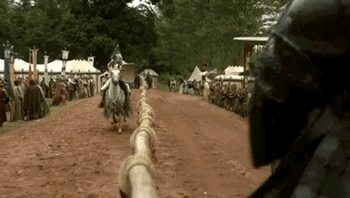
“Throw down the gauntlet:”
In the Middle Ages a gauntlet was the glove in a suit of armor. Throwing down your gauntlet was a way of challenging somebody to a duel.
Today the phrase “throw down the gauntlet” means to challenge or confront someone, but in its earliest use it wasn’t meant as a metaphor, but was a physical action intended to issue a formal challenge to a duel.
History Channel / Wikipedia
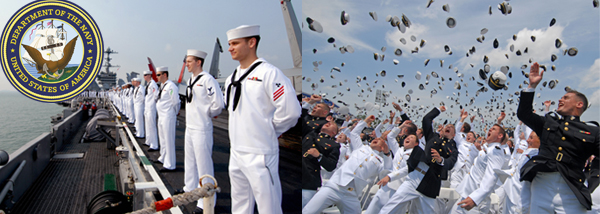
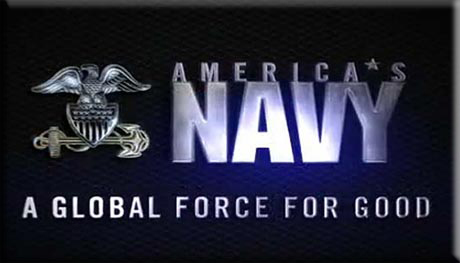
NAVSPEAK aka U.S. Navy Slang
Gerbil Alley: Jebel Ali, United Arab Emirates. The only guaranteed port visit during any Med deployment.
Old Salt: Naval veteran. See “Salty”.
Sandbag: A member of an aircrew who contributes little or nothing to the safe and successful execution of the mission - instead sits there like a sandbag and is just as useful.
TOD: Typical Officer Dude. A weak attempt by TEDs to come up with a nickname for officers.
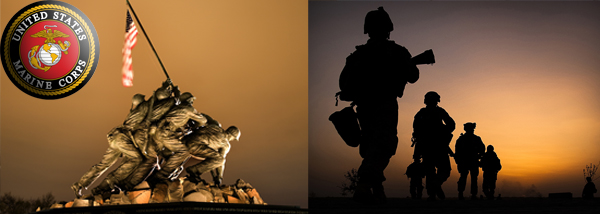
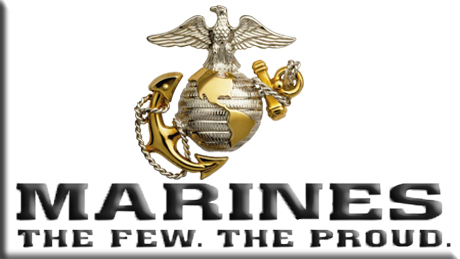
Just for you MARINE
Crotch, The: The Corps (pejorative form).
Crow: General reference to the Naval Eagle in the rank insignia of U. S. Navy petty officers.
Crucible: A 54-hour training event in which Marine recruits are physically and mentally challenged by lack of sleep, minimal food, forced marches, teamwork exercises and leadership opportunities. It is the final major training event of boot camp and is designed to pull together everything they have been taught previously and survive a real challenge.
Parents of recruits or potential recruits should be told that while it will be difficult for their child, it is safe and well supervised. It culminates in the Warrior Breakfast and signals a change in their drill instructors from task masters to mentors.

Navy Acronyms
SWO - Surface Warfare Officer
Navy Officer Corps who pilot, operate and manage a surface ship such as destroyers and cruisers.
TAD - Temporary Additional Duty
A temporary assignment of additional duty.
UCMJ - Uniform Code of Military Justice
The foundation of all military law in the United States, applicable to all members of uniformed services of the United States.

Naval Aviation Squadron Nicknames
VP-30 - Patrol Squadron 30: “Pro’s Nest”
NAS Jacksonville, Florida

The Strange, Mysterious or Downright Weird
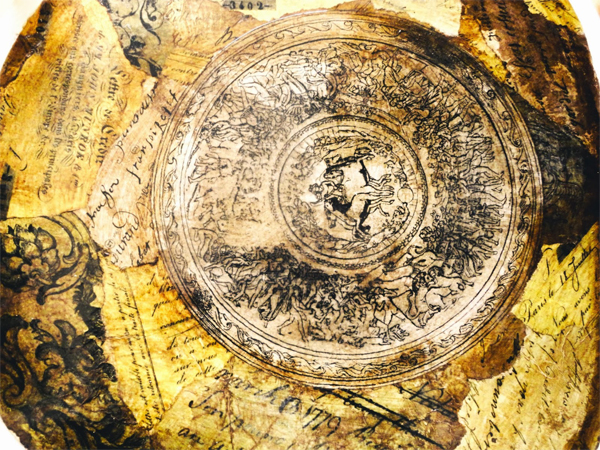
Clinking glasses and swigging beer is a scene played out of many pubs around the world, but don’t expect to see such merriment in Hungary.
This old custom dates back to the 1849 war with Austria. After defeating Hungarian forces and savagely killing thirteen of their military’s leaders, Austrian generals were celebrating by smugly clinking glasses and drinking beer.
While consuming beer was never forbidden, Hungarians did pledge to refrain from clinking glasses for a period of 150 years. Today, this custom is still followed in certain circles despite the expiry of the 150-year vow.
Readers Digest 

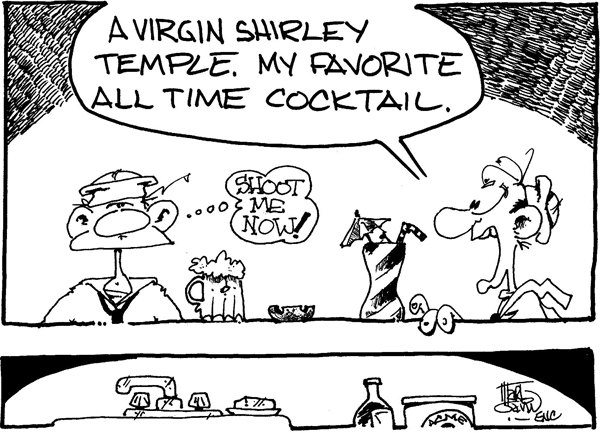
SONG FACTS
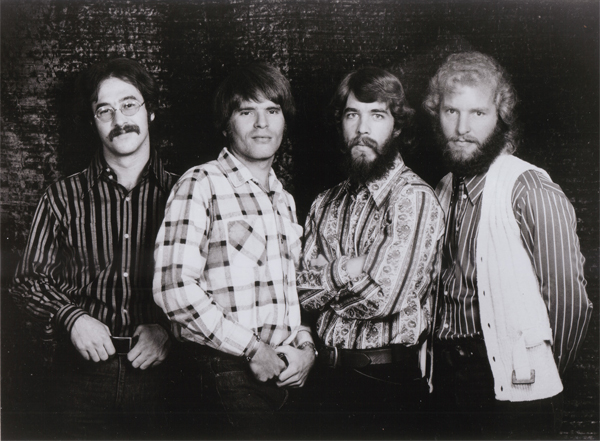
“Proud Mary” - Creedence Clearwater Revival
Album: Bayou Country
Released 1969 
The phrase “Proud Mary” reminded John Fogerty of a domestic washerwoman, which is what he started writing the song about. When he wrote the music, the first few chords reminded him of a paddle-wheel going around, and he thought of the Mississippi River. Instead of “Proud Mary” being a clean-up lady, “she” became a boat.
Fogerty wrote the lyrics based on 3 song title ideas: “Proud Mary”  , “Riverboat”
, “Riverboat”  and “Rolling On A River”
and “Rolling On A River”  .
.
This was the first of 5 singles by Creedence that went to #2 on the US chart. They had the most #2 songs without ever having a #1.
Despite popular belief, John Fogerty was not writing from experience when he wrote this. Thanks to his military commitment, he hadn't ventured further east than Montana.
Fogerty carried around a notebook with titles that he thought would make good songs. “Proud Mary” was at the top of the list.
John Fogerty (about how the guitar riff came about): “I don't know where the germ started. I can kind of remember writing the chords at the beginning of the song. Believe it or not, I was playing around with the famous riff from Beethoven's Fifth Symphony. I used to tell people that the song sounds like what it's about. I thought, by the way, that the opening riff sounded just like the wheel at the back of a boat. 'Proud Mary' is not a side-wheeler, it's a stern-wheeler.”
Even though Creedence Clearwater Revival was from El Cerrito, California, many people thought they were from New Orleans or some other part of the South because of their swamp rock sound. They helped feed the rumor by naming their second album Bayou Country. The line, “Pumped a lot of pain down in New Orleans” is actually “Pumped a lot of 'Pane'”, as in propane. He was pumping gas.
The first time that Fogerty heard Ike and Tina's version  he was in the car. He recalled to Spinner: “When it ended, if they had a camera and came back to me it'd be like, when Shrek and the donkey go to Far, Far Away and they push the button for that little arcade machine and it tells the whole story of their town! And the Donkey's like [Eddie Murphy impression] 'Let's do that again!' That's how I felt when that ended. I loved it, and I was so honored. I was like, 'Wow, Ike and Tina!' I had actually been following their career for quite some time. Way back in the day, when Janis and Grace Slick started to get known by the kids who were my age, I'd be like, 'Man, Tina Turner, c'mon!' She finally got her due, but for a while there, she wasn't noticed. It was a really good version, and it was different. I mean, that's the key. Instead of the same thing, it was really exciting.”
he was in the car. He recalled to Spinner: “When it ended, if they had a camera and came back to me it'd be like, when Shrek and the donkey go to Far, Far Away and they push the button for that little arcade machine and it tells the whole story of their town! And the Donkey's like [Eddie Murphy impression] 'Let's do that again!' That's how I felt when that ended. I loved it, and I was so honored. I was like, 'Wow, Ike and Tina!' I had actually been following their career for quite some time. Way back in the day, when Janis and Grace Slick started to get known by the kids who were my age, I'd be like, 'Man, Tina Turner, c'mon!' She finally got her due, but for a while there, she wasn't noticed. It was a really good version, and it was different. I mean, that's the key. Instead of the same thing, it was really exciting.”
Rolling Stone magazine (500 Greatest Songs of All Time - 156) / Facebook/CCR / Rock & Roll Hall of Fame (Rock & Creedence Clearwater Revival) / Song Facts / Wikipedia / Billboard
Image: “Proud Mary” by Creedence Clearwater Revival
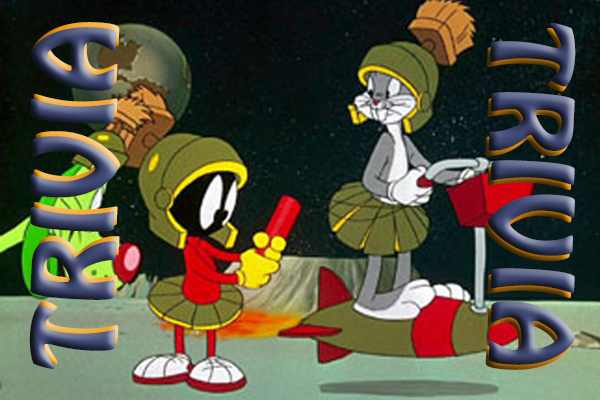
Trivia
● When the first pulsar signal was detected in 1967, it was thought that its signals might be a message from an alien civilization deep in space. The signal was jokingly labeled “LGM”, for “little green men”.
● Designer Gabrielle “Coco” Chanel introduced her first perfume in 1921. She gave it the name “Chanel No. 5”. According to Chanel, she jumped straight to number five because it was her lucky number. To add luck to the fragrance, she introduced it on the fifth day of May, the fifth month. Chanel No. 5 became the world's best-selling perfume.
● The largest light bulb was a 1-foot-long 75,000-watt bulb, hand-blown at the Corning Glass Works, to celebrate the 75th anniversary of Thomas Edison's invention of the incandescent lamp.

A Test for People Who Know Everything
What law enforcement tool was inspired by and named for Tom Swift, the boy inventor whose adventures are recounted in a series of early 20th-Century young adult novels?
● Answer for People Who Do Not Know Everything, or Want to Verify Their AnswerNew York Times
Answer to Last Week's Test
How many restrooms are in the Pentagon in Arlington, Virginia?
Answer: 284. The Pentagon was built with twice as many restrooms as necessary to comply with Virginia segregation laws in effect at the time (1942) which required separate facilities for “white” and “colored” people.

Joke of the Day
These four guys were walking down the street, a Saudi, a Russian, a North Korean, and a New Yorker.
A reporter comes running up and says, “Excuse me, what is your opinion about the meat shortage?”
The Saudi says, “Excuse me, what's a shortage?”
The Russian says, “Excuse me, what's meat?”
The North Korean says, “Excuse me, what's an opinion?”
The New Yorker, says, “Excuse me? What's excuse me?”


 / PBS / Vietnam War Commemoration / The Wall / Vietnam War: The Big Picture, Boston Globe / IIS FALCONE
/ PBS / Vietnam War Commemoration / The Wall / Vietnam War: The Big Picture, Boston Globe / IIS FALCONE























